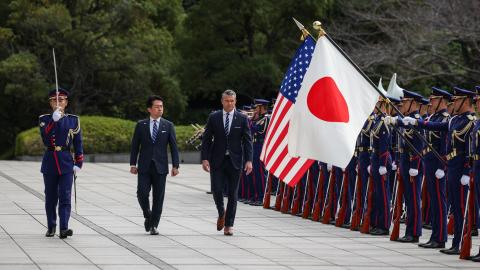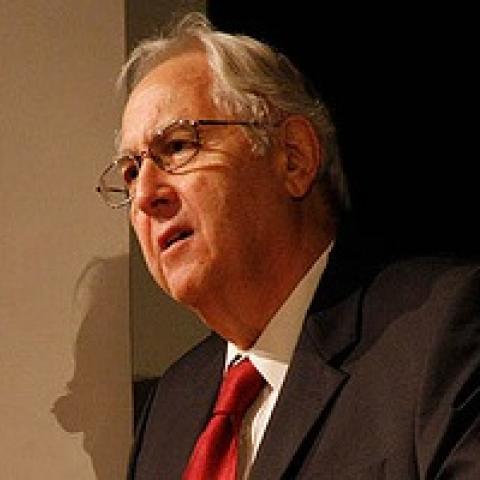A review of A Difficult Woman: The Challenging Life and Times of Lillian Hellman, by Alice Kessler-Harris and Lillian Hellman: An Imperious Life, by Dorothy Gallagher.
Memories of Lillian Hellman have faded, but the controversy over her continues. A playwright whose best known works-- The Children's Hour, The Little Foxes, and Watch on the Rhine --first appeared in the 1930s and '40s, Hellman achieved her greatest fame, and notoriety, during the final 15 years of her life. Her memoir's first volume (of three) won the 1969 National Book Award, and the movie Julia, based on the second, won the 1977 Academy Award for Best Picture. (Jane Fonda played Hellman.)
In 1979, however, novelist Mary McCarthy said of Hellman to television host Dick Cavett that "every word she writes is a lie, including 'and' and 'the.'" Hellman sued McCarthy, Cavett, and the Public Broadcasting System for defamation, but her executors chose not to pursue the litigation, still pending when she died in June 1984.
Hellman remains controversial in this century because her life and work raise unresolved questions about the American Left, the Soviet Union, and McCarthyism. Was she a heroine and martyr, or an unrepentant apologist for totalitarian murderers? The two most recent books on her make this dichotomy clear. Alice Kessler-Harris, a Columbia University historian, has given us a full-scale biography that can only be described as a hagiography. Kessler-Harris doesn't shy away from presenting Hellman as a tortured soul, but argues that despite her flaws, she deserves praise as a radical feminist long before the new feminist movement of the '60s arose, and for standing firm against anti-Communists and Red-baiters.
Dorothy Gallagher, a non-fiction writer who penned a biography of the Italian-American anarchist Carlo Tresca, has written a short book for the Yale University Press series on Jewish lives. Relying heavily on previous biographies, it offers a sharp, insightful assessment. Gallagher cuts through the verbiage to catch Hellman in lies about herself, while detailing Hellman's unforgivable commitment to Stalin's Soviet Union, and her lifelong and shameful anti-anti-Communism.
Kessler-Harris's burden is that Mary McCarthy's judgment of Hellman has become the consensus opinion. How is it, A Difficult Woman asks, that this "complicated and forthright woman had come to such a bad end in the popular imagination?" Hellman has been accused over and over of being a Stalinist, a wretched person, "a greedy self-aggrandizing individual," and far worse. Like Hellman's other biographers, Kessler-Harris necessarily concentrates on politics. She told the Chronicle of Higher Education that in writing her book she sought "to move outside old debates" and to look at the past century "with fresh eyes," taking a critical stance distinct from Stalin's sympathizers and apologists. If that was indeed her intention, she failed.
Kessler-Harris writes, "each new revelation of espionage [from the once closed Soviet and East European archives], every document that revealed a close relationship between the Comintern and the CPUSA [Communist Party of the USA], strengthened the hand of anticommunists." That is, the really important thing about new evidence of Soviet espionage and subversion is not what it tells us about the Cold War, but the deplorable way it bolsters anti-Communists who continue to justify waging the Cold War.
Kessler-Harris is dismayed that Hellman is "forever viewed through the lens of a persistent communist threat," which, Kessler-Harris obviously believes, never existed. Indeed, she goes on to argue that the revisionist historians of the Vietnam era--who blamed the United States, not the Soviet Union, for the Cold War--have been vindicated. She either doesn't know of, or disregards the work of, historians who have demolished that view, including John Lewis Gaddis, Wilson Miscamble, Robert Gellately, Robert Maddox, and others. The revisionists' work, she believes, validated Hellman's belief that "communism posed no real threat to the United States, but attacks on freedom of thought and speech did."
Working from this premise, Kessler-Harris portrays her heroine as a fierce civil libertarian, whose fervor for free speech unfairly allowed anti-Communists to brand her with "the Stalinist label." Unfortunately, the very material she brings to light in A Difficult Woman undercuts that analysis, proving that those who labeled Hellman a Stalinist got it right.
She explains that Hellman and novelist Dashiell Hammett, her companion for many years, believed in the Soviet Union's potential, "and trusted that communism with a small c could be harnessed to the purposes of democratic and progressive causes." If so, they had a funny way of showing it, since they defended the Stalinist system that actually existed in the Soviet Union, not some mythical different form of Communism. The ensuing convoluted arguments--Hellman was not a "dupe," for example, although because of her "fury against the fascists, she neither saw nor registered the dangers of the divisive Soviet policy" during the Spanish Civil War--only make matters worse.
Writing about Stalin's purge trials of 1936, Kessler-Harris acknowledges that "consistent with the party line, Hellman remained silent during the trials; she did not...question their validity nor query Stalin's motives." Hellman signed a public letter declaring her faith in the defendants' guilt, Kessler-Harris writes, thus aligning "her with the Stalinist wing of the Communist Party." This is obtuse or misleading. John Earl Haynes and Harvey Klehr have proven, in The Soviet World of American Communism (1998) and other books, that the CPUSA lacked any non- or anti-Stalinist wing.
Hellman's political life admits of no interpretation other than fidelity to Stalin throughout the entire war and postwar period. She supported the Soviet invasion of Finland, as well as the Nazi-Soviet Pact that went into effect in August 1939 and lasted until Hitler's invasion of Russia in June 1941. These admissions are covered in a chapter Kessler-Harris titles "Politics Without Fear," suggesting that Hellman's lack of a moral compass is somehow admirable. Kessler-Harris finally tells her readers why she finds Hellman's apologetics forgivable: her "deep antifascist and antiracist commitments" would not let her "betray her friends," the unabashed Stalinists who constituted her crowd. Hellman was merely affirming the "right to think about communism in any way that suited her."
Only once does Kessler-Harris criticize Hellman's moral blindness. Soviet anti-Semitism "remained invisible to Hellman long after she should have begun to notice it." But since Hellman apologized for all of Stalin's other abominations, and Kessler-Harris apologizes for all those apologies, why should Hellman have made an exception for anti-Semitism?
Hellman's most notorious lie was that she had risked her own life by passing material to "Julia," her supposed anti-fascist friend in pre-war Austria depicted in her memoir Pentimento (1973). Just before Hellman's death in 1984, however, Samuel McCracken published a scrupulously researched exposé in Commentary, which proved that "Julia" did not exist and that Hellman had appropriated the very real story of Muriel Gardiner, who had written about her activities in the Austrian anti-Nazi underground. This makes Kessler-Harris angry--not at Hellman's duplicity, but at the late Christopher Hitchens's failure to be a good team player. Hitchens, then a man of the Left, declared that McCracken had proved "every verifiable incident [in Hellman's account] false or unconvincing." Those words, Kessler-Harris writes, "affirmed and sealed Hellman's fate as a liar."
Trying to repair her subject's reputation, Kessler-Harris justifies Hellman with what amounts to George Costanza's line on Seinfeld: "It's not a lie...if you believe it." As if to show how the incoherent thinking of postmodernism abets shabby morals, Kessler-Harris contends, "Hellman did not think of her stories as lies," and a dramatist has the right to use "the material at hand to invent tales." Anyway, Hellman "made up stories" about everyone, and "drama was meant to make a point, not just to entertain." Moreover, Hellman may not have consciously lied, since she "never claimed a good memory." The literature of psychology, however, offers no other example of a memory so bad that it took the form of one writer appropriating another's memoir to make herself look heroic.
Sensing that she's defending the indefensible, Kessler-Harris tries a different argument: Hellman "wrote memoirs that were not memoirs, fulfilling the mandate that memoir is the art of lying." Mandate? A historian ought to be the last person to judge a book that purports to recount actual events by employing criteria appropriate to evaluating fiction--in order to spare the author's reputation. Kessler-Harris forgives and dismisses Hellman's lies because the playwright always "believed that she had lived a life of integrity, honesty, and trust." Well, since I always believed that I played five-string banjo with Bill Monroe and the Bluegrass Boys so ably as to win the annual International Bluegrass Association of America's award for best banjo picker three years in a row...I guess I did.
Asserting that Hellman was only briefly a CPUSA member who left in 1940 (years before she did in fact quit), Kessler-Harris goes out of her way to contend that Hellman independently embraced the many political positions that just happened to dovetail with the Communist Party's. In 1949, Hellman played a leading part in a meeting of pro-Soviet figures from around the world, secretly organized by the Communist Party. Kessler-Harris describes the conference, which excluded any anti-Communists from participating and heralded Soviet initiatives, as consisting of "a range of people who insisted on talking about peace and challenging the Cold War." She cites Arthur Miller's participation as an example of the contributions made by non-aligned intellectuals. Evidence uncovered before Kessler-Harris finished writing A Difficult Woman proved, however, that Miller had been a secret CPUSA member who wrote for its press under a pseudonym.
It is refreshing to turn from prop-aganda on behalf of a propagandist to Dorothy Gallagher's serious, critical examination. Gallagher writes that the public persona Hellman constructed was "that of a tough-talking, truth-telling dame, a let-the-chips-fall-where-they-may sort of woman." But as it became clearer and clearer that she had a pathological aversion to truth-telling, her reputation collapsed.
The question to ask is how much she knew about the reality of Stalinism, and when she knew it. Realizing that she looked bad, Hellman wrote in her memoirs that she herself is amazed that she didn't know what was happening while she was in Moscow in 1937, to which Gallagher asks a simple question: "How could it have been that she knew nothing?" The answer is that it could not have been, especially since Hellman acknowledged speaking in Moscow with Stalin's apologist, New York Times journalist Walter Duranty. If anything, Duranty "confirmed her already formed opinion." When she returned home, however, she and Hammett signed the infamous petition endorsing the Soviet verdict that all the purge trial defendants were guilty traitors, working secretly for Hitler. Then in 1939, they wrote an open letter urging the United States not to give Leon Trotsky asylum.
Her ex-husband, Arthur Kober, wrote in his diary that Hellman called the Soviet Union "the ideal democratic state." Believing in absolutes as late as 1967, she told another lover, "I can't get it out of my head that Stalin was right." No wonder that when Hitler broke the Nazi-Soviet Pact, Hellman said to close friends, "The Motherland has been attacked!"
Gallagher goes on to catalogue Hellman's evasions, obfuscations, and outright lies, all meant to depict herself as a well-meaning naïf who had no idea what was going on in Stalin's Russia. Hellman, in fact, lied about almost everything, big and small. She wrote in her memoir that to support herself during McCarthyism and the blacklist in the 1950s she was forced to work as a sales clerk at Bloomingdale's department store--which would have been a peculiar career choice for a woman who had a house in Martha's Vineyard, a farm in New York, many residential investment properties in New York City, stocks, bonds, jewelry, and a household staff.
Hellman's anger and vitriol was meant for those who refused to be fellow-travelers or actual party members, and who realized that fascism and communism had become each other's twin. She continued to reflect and support the party line completely, without any opposition, regret, or second thoughts. In the bitter intra-Left quarrel between Communists and their supporters and left and liberal anti-Communists, Hellman became a warrior on the side of supporters of tyranny. Those disillusioned with viewing the Soviet Union as a worker's paradise, not the remaining true believers, were the enemy she sought to crush. She even failed to protest when her old friend and lover, Otto Katz, was framed and then hanged in the Czech postwar purge trials.
Like her biographer Kessler-Harris, Hellman believed that "truth is larger than the truth of fact." And so Lillian Hellman lied even when she must have known how easily her lies could be proven. Mary McCarthy turned out to be right.
















